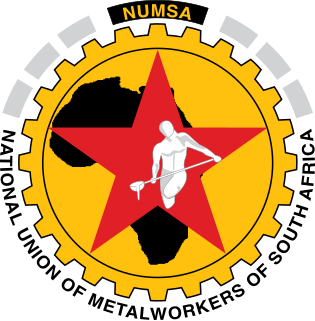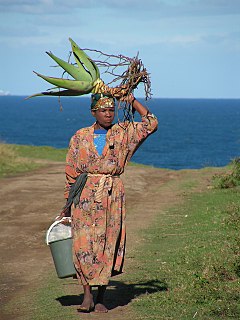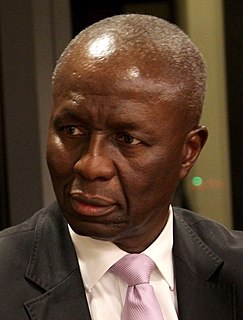The Constitution of the Republic of South Africa
The Constitution of the Republic of South Africa Act, No. 108 of 1996 is the piece of legislation against which each prior piece of legislation must be judged and if necessary be amended, and it is backdrop which has coloured each subsequent piece of legislation promulgated.
It was negotiated after the collapse of the race-based apartheid government and the political redefinition of South Africa. During the negotiations around this change the Interim Constitution of the Republic of South Africa Act, No. 200 of 1993 held the fort, as it were, until the final Constitution of the Republic of South Africa, 1996, was negotiated and promulgated. The Interim Constitution was repealed by the Constitution of the Republic of South Africa, 1996.
The Constitution of the Republic of South Africa holds the all important Bill of Rights, sets up the administrative, judicial and political systems and structures, defines provincial and municipal systems and structures, provides for the passing of laws to necessary to enforce aspects of the Constitution, and sets up institutions such as the Human Rights Commission, which are necessary to safeguard the ideals contained in the Constitution.
The Constitution of the Republic of South Africa Act, 1996, is very much the torch held up by the population of South Africans as the light to guide them. However, there has increasingly been an increasing number of challenges to the Constitution and institutions it set up, such as the Constitutional Court and the South African Human Rights Commission ("SAHRC").
These challenges have emanated from within the ruling party, the African National Congress ("ANC"), and its two allies, the huge labour confederation the Congress of South African Trade Unions ("COSATU"), and the South African Communist Party ("SACP"). For example, the Constitutional Court was recently referred to as "counter-revolutionary" by the Secretary-General of the ANC, and the HRC's order that the leader of the ANC Youth Brigade apologise for statements that he would kill to protect the President of the ANC, Mr Jacob Zuma, from what he considered to be an unfair legal process into corruption charges against Mr Zuma, was largely ignored, as were supporting statements by and a similar order in relation to the leader of COSATU and the SACP.

The African National Congress (ANC) is a social-democratic political party in South Africa. It has been in power since the election of lawyer, activist and former political prisoner Nelson Mandela at the first free and fair elections in 1994, and has been re-elected at every election since, though with a reduced majority every time since 2004. Cyril Ramaphosa, the incumbent President of South Africa, has served as President of the ANC since 18 December 2017.

The Republic of South Africa is a parliamentary representative democratic republic. The President of South Africa serves both as head of state and as head of government. The President is elected by the National Assembly and must retain the confidence of the Assembly in order to remain in office. South Africans also elect provincial legislatures which govern each of the country's nine provinces.

The South African Communist Party (SACP) is a communist party in South Africa. It was founded in 1921 as the Communist Party of South Africa (CPSA), dissolved in 1948, was declared illegal in 1950 by the governing National Party, was refounded as the SACP in 1953, and participated in the struggle to end the apartheid system. It is a partner of the Tripartite Alliance with the African National Congress and the Congress of South African Trade Unions (COSATU) and through this it influences the South African government. The party's Central Committee is the party's highest decision-making structure.

General elections were held in South Africa between 26 and 29 April 1994. The elections were the first in which citizens of all races were allowed to take part, and were therefore also the first held with universal suffrage. The election was conducted under the direction of the Independent Electoral Commission (IEC), and marked the culmination of the four-year process that ended apartheid.

The Constitution of South Africa is the supreme law of the Republic of South Africa. It provides the legal foundation for the existence of the republic, it sets out the rights and duties of its citizens, and defines the structure of the Government. The current constitution, the country's fifth, was drawn up by the Parliament elected in 1994 in the South African general election, 1994. It was promulgated by President Nelson Mandela on 18 December 1996 and came into effect on 4 February 1997, replacing the Interim Constitution of 1993. The first constitution was enacted by the South Africa Act 1909, the longest-lasting to date. Since 1961, the constitutions have promulgated a republican form of government.

Jonathan Shapiro is a South African cartoonist, known as Zapiro, whose work appears in numerous South African publications and has been exhibited internationally on many occasions. He is the nephew of British magician David Berglas and cousin to Marvin Berglas, director of Marvin's Magic.

Joe Slovo was a South African politician, and an opponent of the apartheid system. A Marxist-Leninist, he was a long-time leader and theorist in the South African Communist Party (SACP), a leading member of the African National Congress (ANC), and a commander of the ANC's military wing Umkhonto we Sizwe (MK).

The National Union of Metalworkers of South Africa (NUMSA) is the biggest single trade union in South Africa with more than 338,000 members, and prior to its expulsion on 8 November 2014, the largest affiliate of the Congress of South African Trade Unions (COSATU), the country's largest trade union federation.
Trade unions in South Africa has a history dating back to the 1880s. From the beginning unions could be viewed as a reflection of the racial disunity of the country, with the earliest unions being predominantly for white workers. Through the turbulent years of 1948–1991 trade unions played an important part in developing political and economic resistance, and eventually were one of the driving forces in realising the transition to an inclusive democratic government.

Abortion in South Africa is legal on request in the first trimester of pregnancy, and in special circumstances afterwards. Abortion was legal only under very limited circumstances until 1 February 1997, when the Choice on Termination of Pregnancy Act came into force, providing abortion on demand for a variety of cases.
The Twenty-fifth Amendment of the Constitution Bill 2001 was a proposed amendment to the Constitution of Ireland to tighten the constitutional ban on abortion. It would have removed the threat of suicide as a grounds for legal abortion in the state, as well as introducing new penalties for anyone performing an abortion, by giving constitutional status to legislation proposed to be enacted after the amendment. It was narrowly rejected in a referendum held on 6 March 2002, with 50.4% against.

The National Key Points Act, 1980 is an act of the Parliament of South Africa that provides for the declaration and protection of sites of national strategic importance against sabotage, as determined by the Minister of Police since 2004 and the Minister of Defence before that. The act was designed during apartheid to secretly arrange protection primarily for privately owned strategic sites. It enables the government to compel private owners, as well as state-owned corporations, to safeguard such sites owned by them at their own cost. The act, still in force and unamended since apartheid, came under the spotlight after President Jacob Zuma's Nkandla homestead was declared a National Key Point in 2010 amid controversy over public expenditure on upgrades to the property. As of 2013, the act is officially under review.

In general, all racial and ethnic groups in South Africa have long-standing beliefs concerning gender roles, and most are based on the premise that women in South Africa are less important, or less deserving of power, than men. Some African traditional social organizations are male centered and male dominated. Afrikaner religious beliefs, too, include a strong emphasis on the theoretically biblically based notion that women's contributions to society should normally be approved by, or be on behalf of, men. Modern sexism and Christianity were introduced into South Africa by the ancestors of the Afrikaner diaspora.
The African National Congress (ANC) is the current governing party of the Republic of South Africa. The ANC was founded in 1912 in Bloemfontein and is the oldest liberation movement in Africa.

Dikgang Ernest Moseneke is a South African judge and former Deputy Chief Justice of South Africa.

The South African Protection of State Information Bill, formerly named the Protection of Information Bill and commonly referred to as the Secrecy Bill, is a highly controversial piece of proposed legislation which aims to regulate the classification, protection and dissemination of state information, weighing state interests up against transparency and freedom of expression. It will replace the Protection of State Information Act, 1982, which currently regulates these issues.
Sicelo Shiceka was a South African politician.

The Choice on Termination of Pregnancy Act, 1996 is the law governing abortion in South Africa. It allows abortion on demand up to the twelfth week of pregnancy, under broadly specified circumstances from the thirteenth to the twentieth week, and only for serious medical reasons after the twentieth week. The Act has been described by the Guttmacher Institute as "one of the most liberal abortion laws in the world".

The private home of former South African President Jacob Zuma, situated about 24 km (15 mi) south of the rural town of Nkandla in KwaZulu-Natal, commonly referred to as the Nkandla homestead has been the subject of considerable controversy. The use of public funds to make improvements to the compound, which were said to be for security reasons, which cost over R246 million led to significant media coverage and political opposition. A report of the Public Protector found that Zuma unduly benefited from these improvements and the Constitutional Court subsequently found that Zuma and the National Assembly failed to uphold the country's constitution after he failed to comply with the Public Protector's report on the matter. Zuma finally apologised for using public money to fund his private residence and in April 2016 he was asked to resign by prominent public figures, including anti-apartheid activist Ahmed Kathrada, due to the scandal. The controversy is sometimes referred to as Nkandlagate.

Bongani Thomas Bongo is a South African politician, whose ANC membership is currently suspended along with the party's secretary-general Ace Magashule. Bongo is the former Minister of State Security, a position to which he was appointed on 17 October 2017 by President Jacob Zuma until he was relieved from the post on 28 February 2018. He was the only appointment that had not been a cabinet minister before. He is also the elected President of the University of Limpopo's Alumni and Convocation Association. As the Minister of State Security, Bongo headed the State Security Agency of South Africa.












